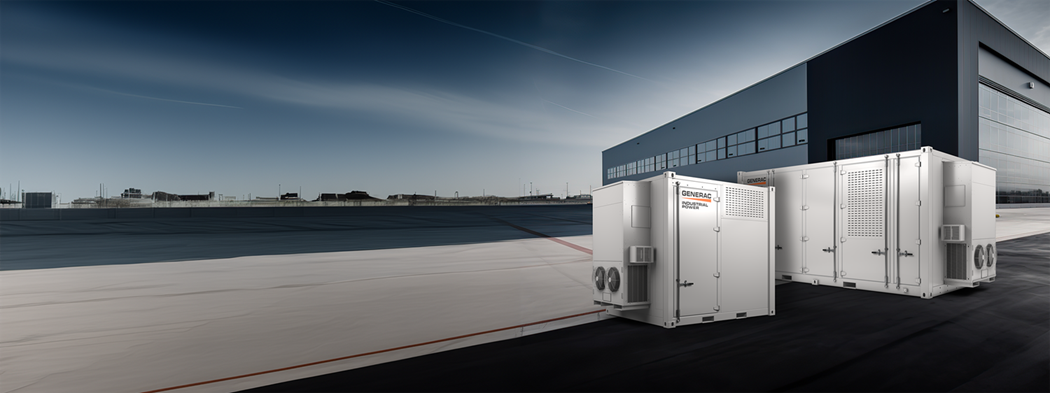BESS for Commercial Buildings: Optimizing Energy Use, Ensuring Resilience & Supporting Sustainability
In today’s fast-evolving energy landscape, commercial buildings are facing increasing pressure to manage energy costs, ensure reliable power supply, and integrate renewable energy sources. Traditional approaches relying solely on utility supply and backup generators are no longer sufficient. This is where BESS for commercial buildings—Battery Energy Storage Systems—come into play, transforming how businesses approach energy management, operational resilience, and sustainability.
For many businesses in the c&i energy sector, managing peak demand and ensuring uninterrupted power are critical concerns. BESS provides a solution that goes beyond simple backup, enabling smarter energy use while supporting long-term strategic goals.
Why Commercial Buildings Need BESS – Beyond Just Energy Storage
Peak Demand, Load Variability & Cost Challenges
Commercial buildings, from office towers to hospitals, experience highly variable energy demands. HVAC systems, lighting, elevators, and IT infrastructure contribute to peaks that can result in costly utility bills. By installing a BESS for commercial buildings, operators can perform peak shaving—storing energy during low-demand periods and discharging during peak hours—reducing demand charges and stabilizing operational costs.
From Backup Power to Energy Management – The Shift in Value Proposition
While backup power remains a core function, modern BESS is increasingly integrated into broader energy management strategies. This includes demand response programs, time-of-use tariff optimization, and load balancing—helping businesses reduce costs while improving operational efficiency.
Building-Type Specific BESS Strategies
Office Towers – Daytime Load & HVAC Peak Shaving
Office buildings often see their highest energy consumption during daytime work hours. BESS can store electricity during off-peak periods and discharge it when HVAC and lighting demands spike, ensuring cost-effective energy usage and preventing overloading of the electrical infrastructure.
Hospitality & Retail – Grid Events, Night Loads & Guest Experience
Hotels, resorts, and retail environments require uninterrupted power for operations and guest satisfaction. Short-term BESS deployment can cover unplanned outages, support peak management at night, and ensure smooth operations during high-traffic periods.
Healthcare / Education – Critical Loads, Reliability & Compliance
Hospitals, clinics, and educational institutions cannot afford downtime. BESS ensures continuous operation of critical systems like life-support equipment, data centers, and security systems. It can complement or even partially replace traditional backup generators, offering flexibility while maintaining regulatory compliance.
Integration with Building Systems & Renewables
BESS + Solar PV + BMS – A Synergistic Approach
Integrating BESS with rooftop solar PV allows commercial buildings to maximize self-consumption of renewable energy. Advanced Building Management Systems (BMS) coordinate energy dispatch, ensuring that stored energy is used efficiently across different loads. Systems like the Outdoor Cabinet Air‑Cooling Energy Storage System provide air-cooled thermal management, optimizing battery performance even in demanding outdoor environments.
Demand Response, Utility Tariff Arbitrage & Smart Scheduling
Modern BESS enables automated response to utility signals, peak pricing, or demand response events. By intelligently scheduling charge and discharge cycles, buildings can reduce energy costs and participate in grid support programs, increasing overall ROI.
Data Analytics & BESS as Part of Smart Building Ecosystem
Real-time monitoring and predictive analytics help operators track battery health, optimize energy flows, and anticipate maintenance needs. Integrating BESS into a smart building ecosystem enhances both energy efficiency and operational reliability.
Sustainability, Safety & Regulatory Considerations
Carbon Reduction, Green Building Certifications & BESS Role
BESS supports green building certifications such as LEED or WELL by reducing reliance on fossil-fuel backup generators and enabling integration of renewable energy sources. This contributes to corporate sustainability goals and lower carbon footprints.
Fire Safety, Thermal Management, Building Codes
Commercial BESS installations must comply with fire safety and building codes. Proper thermal management, ventilation, and safety protocols are essential to mitigate risks like thermal runaway, ensuring safe operation for both personnel and equipment.
End-of-Life & Recycling: What Commercial Operators Must Know
Planning for battery replacement, recycling, and responsible disposal is critical. Lifecycle management strategies minimize downtime and reduce the environmental impact of retired energy storage systems.
Selection & Economic Assessment for Commercial Buildings
Sizing & Modularity for Building Use Cases
Selecting the right capacity depends on building load profiles, criticality, and peak demand patterns. Modular systems allow scaling as energy needs grow, providing flexibility and cost efficiency.
Lifecycle Cost Analysis, ROI & Incentives
A comprehensive assessment should include upfront costs, operational savings, and payback periods. Evaluating available incentives, tax credits, and utility programs can significantly impact overall ROI.
Vendor Evaluation: What Commercial Operators Should Ask
Key considerations include battery chemistry, certifications, integration compatibility, system support, and warranty coverage. Choosing a reliable partner ensures long-term performance and minimal operational disruption.
Future Trends & What’s Next for Commercial Building BESS
Hybrid Systems (BESS + EV Chargers + Microgrid)
Commercial buildings increasingly integrate BESS with EV charging infrastructure and microgrids. This enables dynamic load management, energy arbitrage, and enhanced resilience during grid disruptions.
AI-Driven Energy Management & Predictive Maintenance
Artificial intelligence and machine learning optimize battery dispatch, anticipate maintenance needs, and improve efficiency. Predictive monitoring reduces downtime and extends battery life.
Changing Utility Tariffs & Building Energy Markets
Evolving energy markets and tariffs make BESS an increasingly strategic investment. Commercial buildings can participate in ancillary services, peak demand management, and other emerging programs.
Conclusion
BESS for commercial buildings is no longer just a backup solution. It has evolved into a comprehensive energy management, resilience, and sustainability tool. Strategic deployment tailored to building types, integration with renewables, and careful attention to safety and compliance can transform operational efficiency and long-term energy strategy.
Explore advanced solutions designed for commercial buildings with the Outdoor Cabinet Air‑Cooling Energy Storage System.
Suggested Readings / Related Articles


